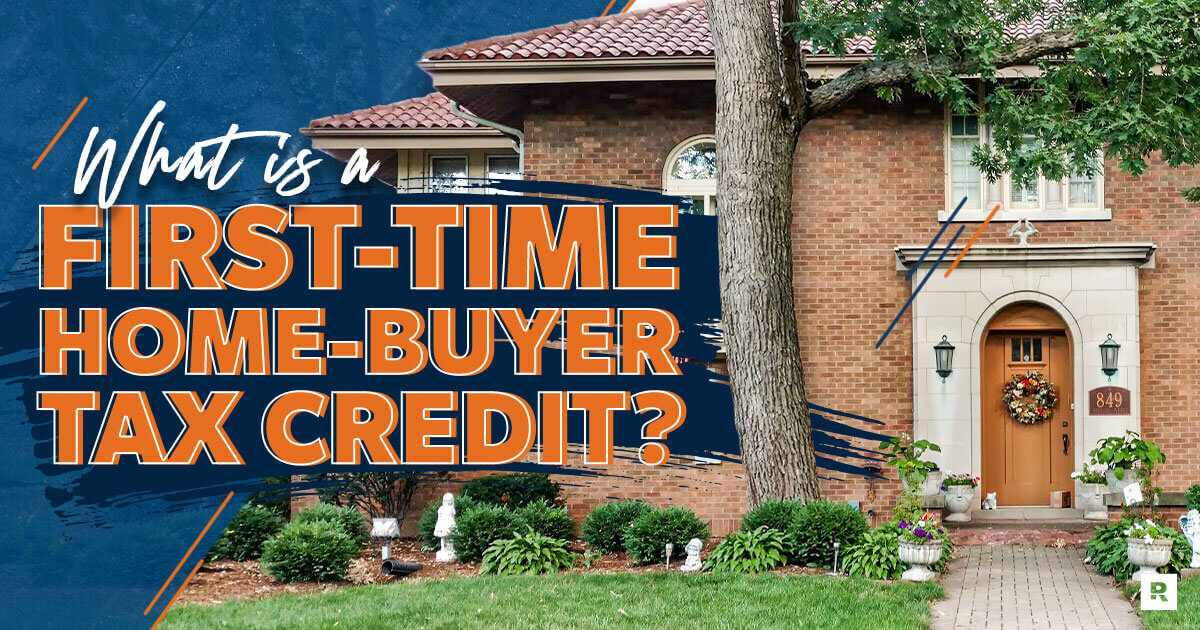If you’re thinking about buying your first house, congratulations!
Homeownership can be one of the biggest blessings in your life and one of the best ways to build lasting wealth. And you might have seen something on the news in recent years about President Biden’s proposed First-Time Homebuyer Act of 2021. This is a form of financial assistance (a tax credit) that would give new home buyers some relief on their federal taxes. It’s similar to a bill that passed in 2008 during the Great Recession to get people buying houses again.
So, what is a first-time home-buyer tax credit anyway, and do you qualify? Let’s dig in.
What Are First-Time Home-Buyer Tax Credits?
The first-time home-buyer tax credit was a refundable $8,000 credit people could claim on their federal income tax returns in 2008, 2009 and 2010. By using the tax credit, new homeowners could reduce the amount of federal taxes they owed after buying their first house. And since the credit was fully refundable, if it was more than their total tax bill, they could get the difference back as a refund!
Get expert money advice to reach your money goals faster!
The first-time home-buyer credit was created in response to the Great Recession as part of the Housing and Economic Recovery Act (HERA). Married couples and individuals who bought their first home between April 8, 2008 and May 1, 2010 could apply the credit to their tax return. Originally, the credit was intended to encourage moderate- to low-income families to buy a home.
Now, in 2023, another first-time home-buyer credit is on the table, which we’ll look at more closely.
Where to Find First-Time Home-Buyer Credits
The home-buyer tax credit of 2008 doesn’t exist anymore. It’s gone forever, just like the social media sensation, Vine. (Remember the “when life gives you lemons” guy or the kid who got an avocado for Christmas? May their six-second comedic masterpieces rest in peace.)
Anyway, there are still assistance programs for new home buyers through state and local tax incentives, as well as the current proposed home-buyer act that could help new homeowners save on taxes.
What Is the First-Time Homebuyer Act of 2021?
Flash forward to 2021—President Biden launched a campaign trying to pass the First-Time Homebuyer Act of 2021 (also known as the First-Time Homebuyer Tax Credit). The act would essentially bring the 2008 tax credit back to life with a few updates. But this time around, qualified home buyers would get a tax credit up to 10% of their home’s purchase price, up to a maximum of $15,000. The credit isn’t a loan or cash grant—it’s a refundable tax credit you apply directly to your tax bill after the purchase of your first home.1
But like most good offers, there’s a string attached. If you moved or sold your home within the first year of purchasing it, you’d have to repay 100% of the tax credit—and this number goes down 25% each year until you’ve been in the house for four years (except in the case of divorce, death, military relocations, etc.). As of December 2023, the bill hasn’t been passed into law, so the tax credit isn’t available. But things could change and you want to stay aware of any new tax credits or rule changes that could save you some dough! So the best thing to do would be to get with a tax professional who can keep you up to date.
Who Qualifies as a First-Time Home Buyer?
To qualify as a first-time home buyer, you have to meet some requirements. And unlike the name suggests, you’re considered a first-time home buyer if you haven’t bought a home or co-signed a mortgage (which you shouldn’t do anyway) at any point in the last three years. To qualify as a first-time buyer, here are a few other requirements you need to meet:
- You’re 18 years old or older.
- You’re buying the home from someone other than a relative.
- You’re purchasing a primary residence, not a second home or investment property.
- Your income is modest for your location and household size.
Get the right mortgage from a trusted lender.
Whether you’re buying or refinancing, you can trust Churchill Mortgage to help you choose the best mortgage with a locked-in rate.
Tips for First-Time Home Buyers
Tax break or no tax break, you should only buy a house when you’re financially ready. That way, home ownership will be a blessing, not a curse.
So, how do you know if you’re ready to buy a house? Here are some of the most important tips for first-time home buyers:
Being ready to buy your first house means you have no debt, you’ve got a fully funded emergency fund of 3–6 months of expenses saved up, and you have an ideal down payment of 20%. If you’re a first-time buyer, 5% to 10% down is all right—but be prepared to pay private mortgage insurance (PMI). And your mortgage payment on a 15-year mortgage should be no more than 25% of your monthly take-home pay.
Want More Expert Real Estate Advice?
Sign up for our newsletter! It’s packed with practical tips to help you tackle the housing market and buy or sell your home with confidence—delivered straight to your inbox twice a month!
Types of First-Time Home-Buyer Programs, Loans and Grants
Yes, some home-buyer tax credits can save you money when you buy a house for the first time. But I don’t want you to rely on this kind of government assistance when you’re in the real estate market. Let’s talk through types of first-time home buyer programs and why they’re not the best idea—plus, what you can do instead to set yourself up for a successful first house purchase.
- The U.S. Department of Housing and Urban Development (HUD) offers loan and grant options to support and uplift communities. You can find housing assistance on the agency’s website.2 But here’s my advice: If you need help coming up with a 5–10% down payment, or if you can’t afford the payment on a 15-year fixed-rate mortgage, you can’t afford to buy a home right now.
- The Mortgage Tax Credit Certificate (MCC) isn’t a loan—it’s a federal tax credit issued by state housing finance agencies to help first-time home buyers offset what they owe in mortgage interest. Don’t count on this tax credit though, because it’s based on funding availability and has income and sales price limits for buyers.3
- First-time home-buyer loan programs, like the Federal Housing Authority (FHA) loans, United States Department of Agriculture (USDA) loans, and U.S. Department of Veterans Affairs (VA) loans, can help a first-time buyer with a low down payment get a house, but beware—they come with hefty fees and can cost thousands of extra dollars in the long run. That’s why I never recommend them. When you’re ready to buy a home, stick with a 15-year fixed-rate conventional mortgage.
Find a Tax Professional Who Can Help
If you’ve just bought a house and are wondering if you’re eligible for any new tax breaks, get in touch with a RamseyTrusted tax professional. They can walk you through all the right credits and deductions and help make sure your taxes are done correctly. Find a tax pro near you today!




